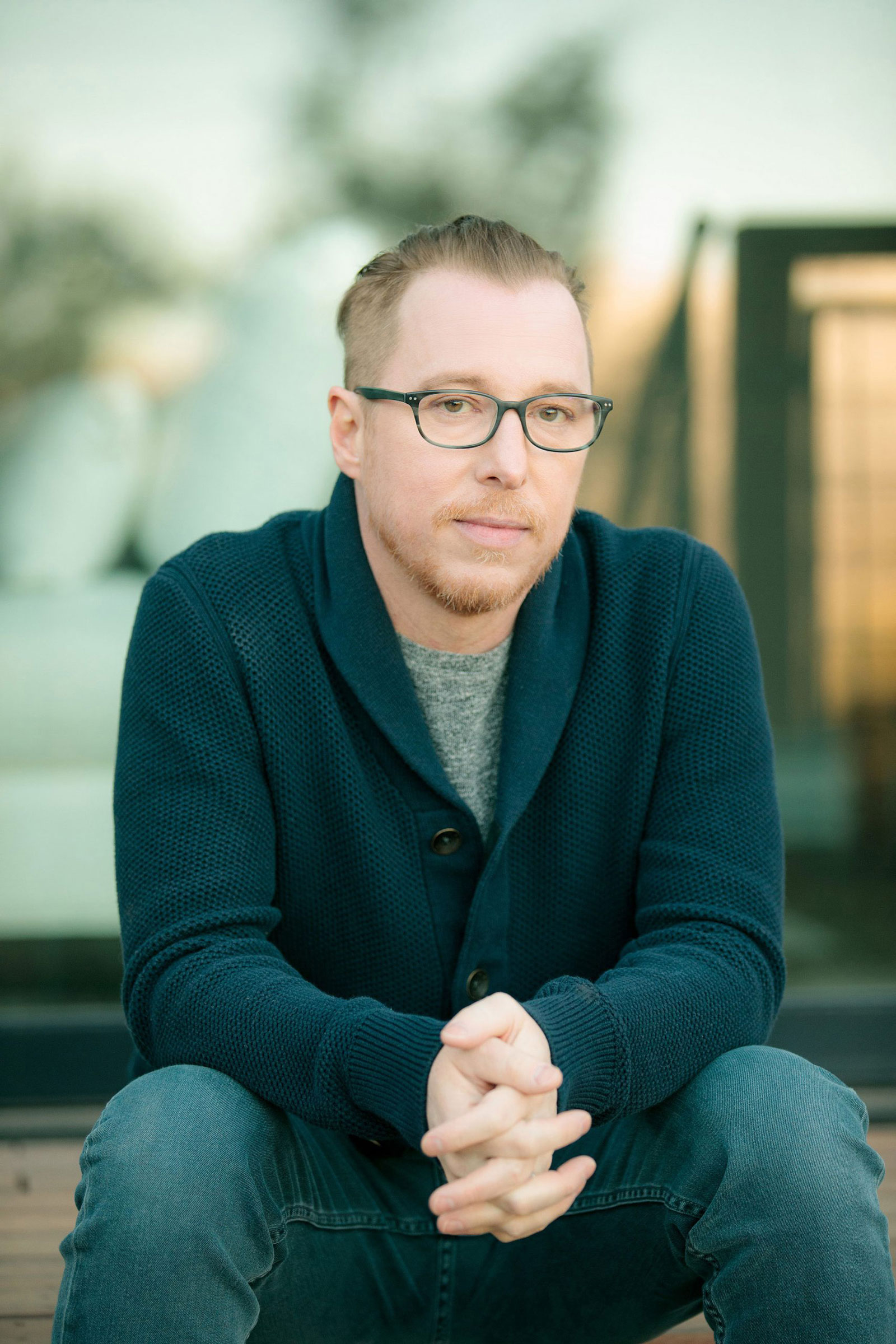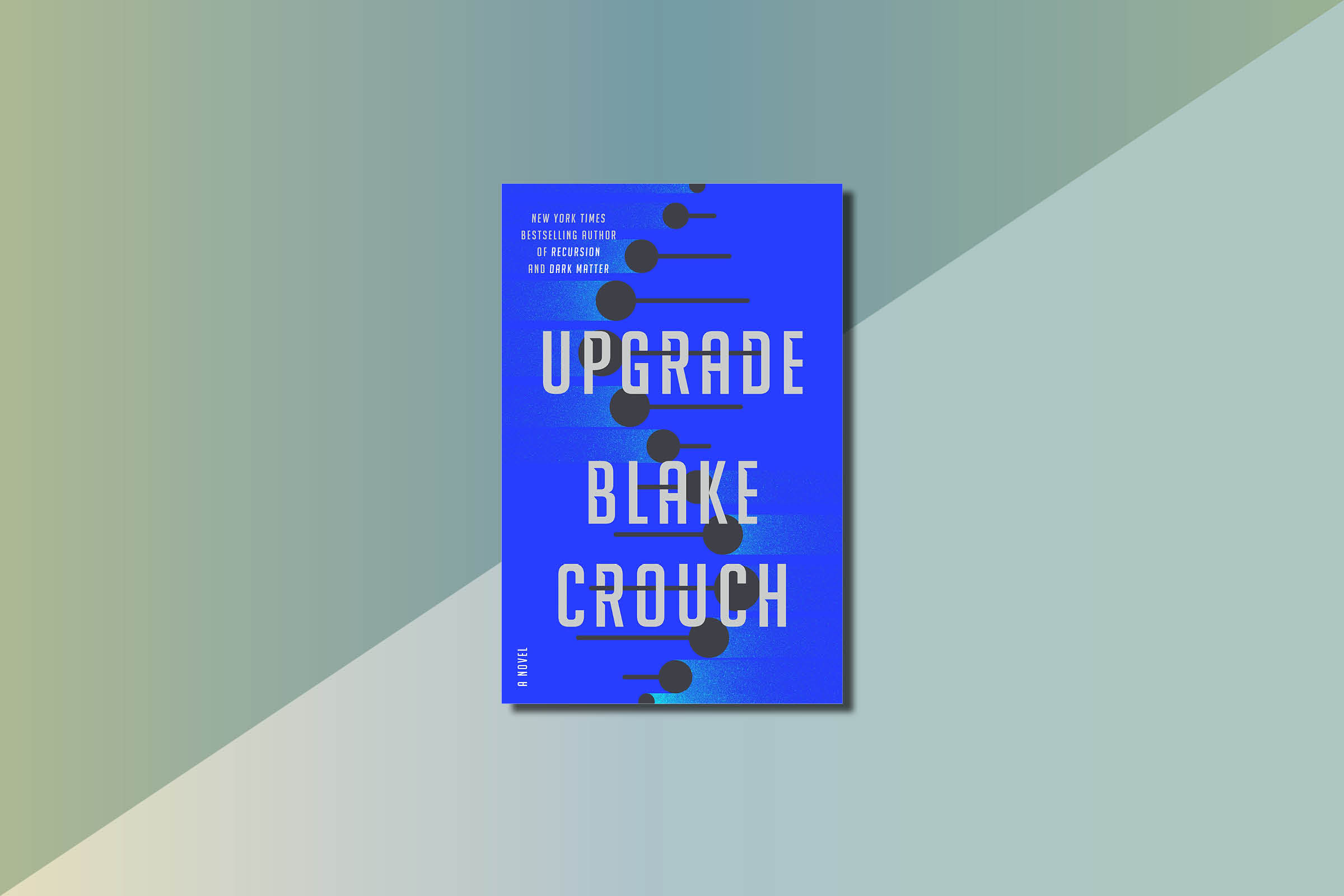
In 2019, Blake Crouch published Recursion, a sci-fi thriller about a neurological disease that inflicts memories upon people of lives that are not their own. Before that, he introduced readers to a physics professor who is kidnapped and then catapulted into alternate universes in his 2016 novel Dark Matter. Both books bring to life the type of technology that, in imagined worlds, would have the capability to change humankind. So when Crouch set out to write about the very real genetic modification technology CRISPR, he knew it would be a different prospect. “Unlike quantum mechanics—as I don’t think anyone believes we’re on the precipice of opening the multiverse and going into other worlds—with gene editing, we’re right there,” the author says. “We’re a few breakthroughs away from being able to truly rewrite what it means to be human.”
Crouch positions that idea at the heart of his new book Upgrade, out July 12, which follows the devastating consequences of a genome editing scheme gone wrong. In Upgrade, Logan Ramsey is the adult son of a defamed scientist whose CRISPR-like technology caused millions of people to die. When Logan’s own genome is hacked, he becomes an “upgraded” version of himself: he can focus better, read faster, and operate on a lot less sleep. But his upgrade comes at a cost—and he’s determined to find out who is behind what’s happening to him.
As Crouch explores Logan’s changing psyche, he asks big questions about the future of gene editing and what it could mean for society. The author spoke to TIME about why he’s “terrified” of the book he’s about to release, why he no longer thinks of himself as an author of science fiction, and how he finds hope when the future looks increasingly bleak.
TIME: You did a ton of research on gene editing for Upgrade. Was there anything you learned that stood out?
Blake Crouch: The big thing I came away with is how afraid scientists are of this research and this technology. I didn’t realize how unnerved everyone was about both the optimistic potential of this technology—but also the pitfalls that await us.
How much liberty did you take with the science?
Not as much as I thought I would have to take, which terrifies me. This book is going to be sold as science fiction, as a futuristic thriller. But I really don’t think it is. We’re already living in the future—I don’t think science fiction exists anymore. All of the threats and promises in this book are at our fingertips. Jennifer Doudna, one of the co-creators of CRISPR, talks about having this nightmare of Hitler discovering it. That always stuck with me: the person who discovered this gene-modification therapy is kept up at night, fearful of what might happen.
Read More: How Jennifer Doudna’s Life Has Changed Since Discovering CRISPR 10 Years Ago
Hold on. When did you start to believe that science fiction doesn’t exist anymore?
With this book. From [my 2012-2014 trilogy] Wayward Pines, I’ve considered myself someone who writes science fiction. I was writing about what the future might hold. Now, we hold phones in our hand that can summon groceries and cars and future spouses. We’re living in the future. I’m not a writer who wants to say that science and technology are bad. No, it’s amazing! Technology is why we still have civilization. But man, this is the most powerful tool we’ve ever invented. We’ve got to be careful with it.

If not sci-fi, what is Upgrade?
The book is set slightly in the future, because I wanted to accelerate where some of the climate change and more in-the-weeds technology was heading, but it’s a mirror of where we might be five minutes from now. I have three kids. I am uncertain. Everyone seems to feel that way. Are we going to be here prevalently as a species in 100 years, 75 years? It’s a weird thing for a species with full sentience to contemplate its demise. The last dodo bird didn’t know it was the last dodo bird.
Read More: 27 New Books You Need to Read This Summer
After he’s upgraded, Logan realizes that he can essentially turn his emotions off. He says: “I could put my feelings inside this cage, I could close the door.” Have you ever wished for that kind of ability?
I wear my heart on my sleeve. It’s how I tap into character. One of the things that made me want to be a sci-fi writer, before we eschewed the idea that I’m a sci-fi writer, is that I love the imagination of it all. What I missed were characters I cared about. It always felt like a writer came up with a really cool idea but forgot that all anyone cares about at the end of the day is character journeys. We just want to read about other people going through life. I want to bring that into high concept, quote unquote, science fiction.
Do you watch the show Severance?
Oh, my God, I love that show. It’s the first thing I’ve seen in a decade that I am madly jealous that I didn’t come up with that idea. It’s amazing.
It also raises this question of whether it’s possible to literally turn off a part of yourself to get something done. That idea really resonated with a lot of fans of the show—why do you think that is?
All we see all the time is the bad news. What Severance ultimately tapped into and, maybe what I was going for but didn’t realize, is that this is a very hard time to be alive. Every day we’re confronted with headlines, and I don’t know how a sane, compassionate, empathetic person couldn’t wish, to some degree, to be able to forget all that and just do your work. I wrote Upgrade during the time of COVID and it was hardest book I’ve ever written, not just because of the subject matter, but because no one knew how bad this pandemic was going to be. Were we looking at Contagion? Was everything ever going to go back to normal?
Read More: Severance Is the Rare ‘Galaxy-Brain’ Show Smart Enough to Blow Your Mind
There is a pandemic-type event in the book. Are you purposefully nodding to COVID?
I started it in September 2019. My first attempt was a completely different way in: I had imagined doing almost a Jurassic Park thing, more about how gene editing could affect new life-forms. Then COVID hit, and I had this realization: think about what we’re going through right now. Why would I not be writing about this technology vis à vis humanity? I had written almost an entire novel, but I ended up throwing that away and starting over.
With the world being as scary as it is, what gives you hope?
There’s a moment in the book where Logan says something like, you can’t sacrifice humanity to save humanity, because if you do, you’re giving up the whole game. I fell into that like a trust fall. It’s not necessarily my first instinct, but that’s all we have at this point: trust and compassion. Trust that we’ve gotten this far. We are ultimately a cooperative species. We have to trust that we’re going to get through this very dark time together.
This interview has been condensed and edited for clarity.
More Must-Reads from TIME
- Why Trump’s Message Worked on Latino Men
- What Trump’s Win Could Mean for Housing
- The 100 Must-Read Books of 2024
- Sleep Doctors Share the 1 Tip That’s Changed Their Lives
- Column: Let’s Bring Back Romance
- What It’s Like to Have Long COVID As a Kid
- FX’s Say Nothing Is the Must-Watch Political Thriller of 2024
- Merle Bombardieri Is Helping People Make the Baby Decision
Write to Annabel Gutterman at annabel.gutterman@time.com